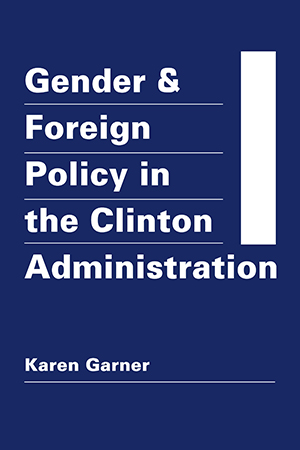
- 2013/333 pages
- A FirstForumPress Book
Gender and Foreign Policy in the Clinton Administration
Hardcover: $72.00
ISBN: 978-1-935049-60-9
Ebook: $72.00
ISBN: 978-1-935049-97-5
Though recent US government attention to global women's rights and empowerment is often presented as a new phenomenon, Karen Garner argues that nearly two decades ago the Clinton administration broke barriers to challenge women's unequal status vis-à-vis men around the world and to incorporate their needs into US foreign policy and aid programs.
Garner draws on a wide range of primary sources, including interviews with government officials and feminist activists who worked with the administration, to present a persuasive account of the emergence, evolution, and legacy of US global gender policy in the 1990s.
Garner draws on a wide range of primary sources, including interviews with government officials and feminist activists who worked with the administration, to present a persuasive account of the emergence, evolution, and legacy of US global gender policy in the 1990s.







